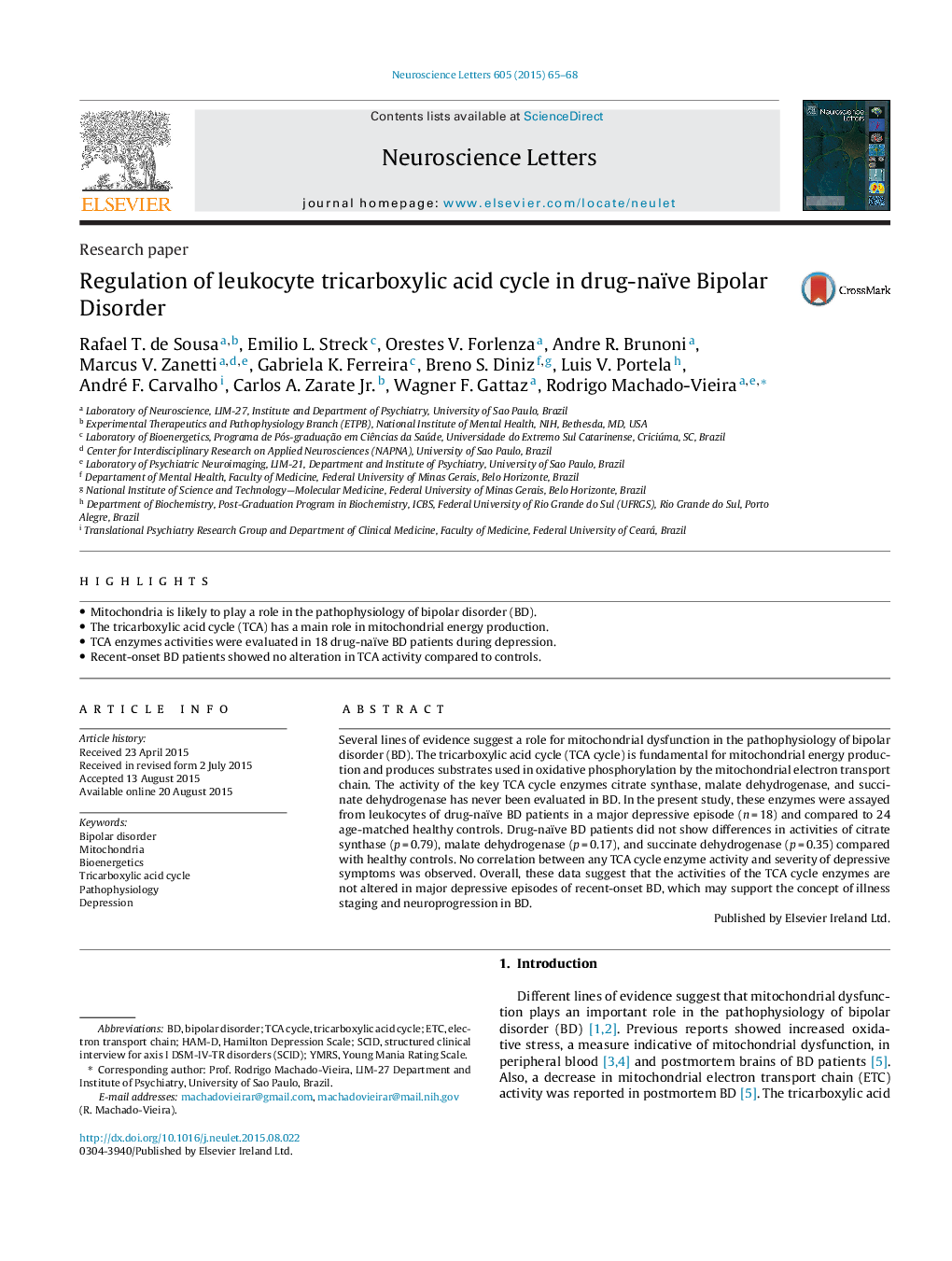| Article ID | Journal | Published Year | Pages | File Type |
|---|---|---|---|---|
| 6280651 | Neuroscience Letters | 2015 | 4 Pages |
â¢Mitochondria is likely to play a role in the pathophysiology of bipolar disorder (BD).â¢The tricarboxylic acid cycle (TCA) has a main role in mitochondrial energy production.â¢TCA enzymes activities were evaluated in 18 drug-naïve BD patients during depression.â¢Recent-onset BD patients showed no alteration in TCA activity compared to controls.
Several lines of evidence suggest a role for mitochondrial dysfunction in the pathophysiology of bipolar disorder (BD). The tricarboxylic acid cycle (TCA cycle) is fundamental for mitochondrial energy production and produces substrates used in oxidative phosphorylation by the mitochondrial electron transport chain. The activity of the key TCA cycle enzymes citrate synthase, malate dehydrogenase, and succinate dehydrogenase has never been evaluated in BD. In the present study, these enzymes were assayed from leukocytes of drug-naïve BD patients in a major depressive episode (n = 18) and compared to 24 age-matched healthy controls. Drug-naïve BD patients did not show differences in activities of citrate synthase (p = 0.79), malate dehydrogenase (p = 0.17), and succinate dehydrogenase (p = 0.35) compared with healthy controls. No correlation between any TCA cycle enzyme activity and severity of depressive symptoms was observed. Overall, these data suggest that the activities of the TCA cycle enzymes are not altered in major depressive episodes of recent-onset BD, which may support the concept of illness staging and neuroprogression in BD.
